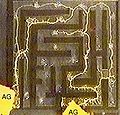Category:Philosophy
Alfred North Whitehead
Toward the end of his time in England, Whitehead turned his attention to philosophy. Though he had no advanced training in philosophy, his philosophical work soon became highly regarded. After publishing The Concept of Nature in 1920, he served as president of the Aristotelian Society from 1922 to 1923, and moved to the United States in 1924 where he joined the faculty at Harvard University as a professor of philosophy.
During his time at Harvard, Whitehead produced his most important philosophical contributions. In 1925, he wrote Science and the Modern World, which was immediately hailed as an alternative to the Cartesian dualism then prevalent in popular science. His lectures from 1927 to 1928, were published in 1929 as a book named Process and Reality, which has been compared to Immanuel Kant's Critique of Pure Reason.
Plato
Along with his teacher, Socrates, and his student, Aristotle, Plato is a central figure in the history of philosophy. Unlike the work of nearly all of his contemporaries, Plato's entire body of work is believed to have survived intact for over 2400 years. Although their popularity has fluctuated, Plato's works have consistently been read and studied. Through Neoplatonism Plato also greatly influenced both Christian and Islamic philosophy. In modern times, Alfred North Whitehead famously said: "the safest general characterization of the European philosophical tradition is that it consists of a series of footnotes to Plato."
Aristotle
We can relate Aristotle's four causes to different aspects of the Ship of Theseus paradox. The four causes, as described by Aristotle, are:
- Material Cause: This cause refers to the material or substance out of which an object is made. In the case of the Ship of Theseus, the material cause would be the wooden planks used to construct the ship. As the planks of the ship are replaced over time, the material cause of the ship changes.
- Formal Cause: The formal cause pertains to the form or structure of an object—the arrangement and organization of its parts. In the Ship of Theseus paradox, the formal cause could be seen as the overall design and arrangement of the ship, including its shape, size, and configuration. Even if all the individual planks of the ship are replaced, the formal cause could be argued to persist as long as the overall structure and arrangement of the ship remain the same.
- Efficient Cause: The efficient cause relates to the agent or process that brings about the object's existence or change. In the Ship of Theseus, the efficient cause could be attributed to the shipbuilders who replace the decaying planks and maintain the ship's functionality. They are responsible for the ongoing process of replacing the planks to keep the ship seaworthy.
- Final Cause: The final cause concerns the purpose, goal, or telos of an object—the reason for its existence or the end towards which it is directed. In the case of the Ship of Theseus, the final cause could be seen as its intended function, such as transportation, exploration, or trade. The ship's purpose remains intact, regardless of whether the individual planks are replaced.
These different causes can be applied to analyse and explore the Ship of Theseus paradox, providing insights into the nature of identity, persistence, and change over time. They allow for a nuanced examination of the various aspects of the ship and the philosophical questions it raises.
Ken Wilbur
See also
Pages in category "Philosophy"
The following 80 pages are in this category, out of 80 total.
N
S
T
- Tao Te Ching Intro
- The Beast
- The Big Picture
- The Four Agreements
- The path
- The path of the Masters
- The Principles - Full Text Page 1
- The Principles - Full Text Page 2
- The Principles - Full Text Page 3
- The Principles - Full Text Page 4
- The Project
- The Secret Powers of Time
- The Semantic Web
- The seven habits of highly effective people
- The Sun as God
- The Wayseer Manifesto
- Think global, act local
- Torus
Media in category "Philosophy"
The following 9 files are in this category, out of 9 total.
- 4 elements of trust.jpg 2,047 × 1,151; 172 KB
- Aum.png 242 × 201; 6 KB
- Binary-multiplexing.png 859 × 408; 52 KB
- Formscapes quadrants.jpg 2,684 × 2,148; 347 KB
- Greatchain-correspondences.gif 688 × 599; 51 KB
- Logic and Formal Ontology.pdf ; 270 KB
- Ontology and Information Systems.pdf ; 241 KB
- Slime.jpg 233 × 224; 19 KB
- Where has all the Money gone.pdf ; 740 KB













